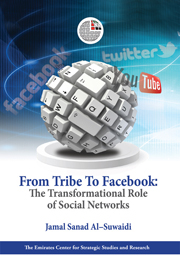Book contents
- Frontmatter
- Contents
- Acknowledgments
- Introduction
- Keywords
- Scope of the Study
- Previous Studies
- Social Networks: Concept and Role
- Statistical Indicators of Main Social Networks
- The Social Networking Age
- Data-entry Potential of Social Networks
- Impact of Social Networks
- Prospects for the Relationship between Traditional Media and Social Networks
- Legal Problems Associated with the Use of Social Networks
- Social Networks: Future Prospects
- Conclusion: Various Future Prospects
- Notes
- Bibliography
- Index
Introduction
Published online by Cambridge University Press: 05 September 2014
- Frontmatter
- Contents
- Acknowledgments
- Introduction
- Keywords
- Scope of the Study
- Previous Studies
- Social Networks: Concept and Role
- Statistical Indicators of Main Social Networks
- The Social Networking Age
- Data-entry Potential of Social Networks
- Impact of Social Networks
- Prospects for the Relationship between Traditional Media and Social Networks
- Legal Problems Associated with the Use of Social Networks
- Social Networks: Future Prospects
- Conclusion: Various Future Prospects
- Notes
- Bibliography
- Index
Summary
Anyone with an interest in the course of human history will recognize the fact that man's ambition – and that of humanity as a whole – is to achieve a better world in the future than the one it inhabits in the present. Mankind has dreamt of myriad ways to facilitate various aspects of life, including society, work, livelihood, and means of study—some of which have been realized, while many others remain mere aspirations. The topic of this book – the development of the role of social networks and their future implications for all aspects of life – is the reality of tomorrow, to which mankind must adapt with minimal disruption.
The globalization of digital technology has succeeded in realizing a number of mankind's ambitions, establishing the boundaries of a global electronic culture that extends across time and space. The interconnection of information and communication technologies is manifested in the emergence of social networks which, over time, have played a prominent role in shaping public opinion and in the formulation of subjective attitudes towards various different issues and events in numerous fields.
The Third Annual Conference of the Emirates Center for Strategic Studies and Research (ECSSR), “The Impact of the Information and Communication Revolution on Society and State in the Arab World,” which took place on January 4–7, 1997, sought to analyze the various dimensions of the impact of the information revolution on the communities of the UAE and the broader Arab world, in an attempt to identify future challenges facing the region in the coming century.
- Type
- Chapter
- Information
- From Tribe to FacebookThe Transformational Role of Social Media, pp. 9 - 14Publisher: Emirates Center for Strategic Studies and ResearchPrint publication year: 2013



